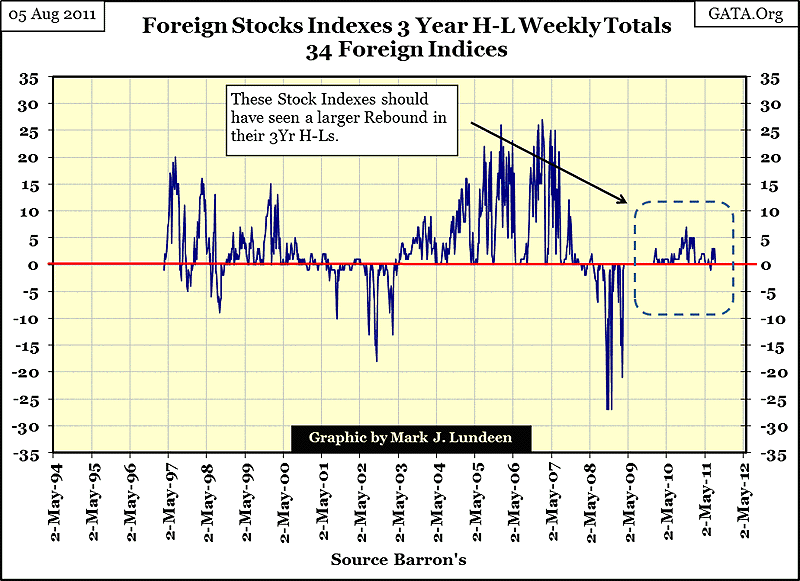|

Are International
Stocks Safer than U.S. Equities?
Those fall season concerns in market volatility are once again upon
us. After so many years of a zero interest rate environment, nervous tension is breaking out. Review the record. For a comparison
of International Stock Indexes, Market Data Center statistics from the WSJ is useful. Now evaluate Doug Ramsey’s, chief investment officer at the
Leuthold Group, argument in Comparing Valuations: U.S. vs. International Stocks.
“Using MSCI indexes, U.S.
stocks trade for nearly 24 times those earnings. By contrast, the rest of the world trades at less than 19 times earnings,
European stocks at about 17 times earnings, and emerging-markets stocks at barely 14 times earnings. “We
see the same pattern in price-to-book value ratios,” Ramsey says. “While U.S. stocks recently were valued at 2.8
times book value, that ratio was 1.8, 1.7, and 1.6 for Europe, worldwide foreign stocks, and emerging markets, respectively.” There
are reasons that U.S. stocks command relatively high valuations, but the gaps are so large that they are difficult to justify,
Ramsey says.”
On face value, the devoted investor may conclude it is time to rotate out of
U.S. equities and into international stocks. If only company performances were linear and returns reflected a correlation
in stock prices. Fundamentals are about as useful as the commissions charged to manage a hedge fund.
“Now unnamed sources
in the ruling coalition leaked that the German government would cut its growth forecast for this year and next year on Tuesday,
when it announces its twice-a-year projections. It would amount to a “sharp cut” from the already tepid 1.8% growth
projections made in April. This despite the all-out ZIRP and QE central banks have inflicted on conservative
investors and aging baby boomers in order to force them into stocks and junk-bond funds and asset-backed securities and other
chimera of Wall Street. The purpose was to drive up asset prices. And it worked. Now that these folks have stashed their money
in stocks at peak valuations, the whole thing is unraveling.”
While the initial observation
may explain the recent drop in day to day pricing, the later is far more significant in warning about the inevitable adjustment.
Maybe this is the true measure of fundamental reality.
Add to this uncertainty the Dubai Stocks Crash, illustrates a viewpoint from an asset rich region.
“Hisham Khairy, the Dubai-based head of institutional trade at Mena Corp. Financial Services, told Bloomberg that, "Global markets are all selling off and it’s that weakness we’re tracking. There’s still
more blood to come."
Spreading to the Orient, the political unrest takes it effect as Chinese Stocks in Hong Kong Fall to Extend Loss. “Chinese shares fell in Hong Kong; with the benchmark index dropping 10 percent from this year’s high, as protests
in the city added to concern about weakening global economic growth.”
The projections that have
floated for decades that a collapse is coming have been delayed for years. During that time, “Wealth Is Flowing From West to East” interjects the political and foreign policy factors that influence economic results. However, most investors ignore
the long term trends in realignments and concentrate on the immediate developments that spook markets and drive price gyrations.
Unpredictability
is great for dramatic movement in markets, but the trick is to have firm confidence in knowing the direction it will take.
Such prospects beg the theory that money is invested. The certainty is that exchanges are gambling dens, and to the most jaded
and cynical players, equities are mere chips in a fixed game of pump and dump. So the question
for the reformed speculator is whether foreign exchanges are less of a manipulated bet, or should one wager their funds on
a domestic fling better known?
“Modern portfolio theory has defined investment strategies for both institutions and individuals since it was first presented. Constructing a
portfolio of non-U.S.-based assets, particularly in developed stock markets, has both increased total returns and decreased
volatility. There has, however, been a trend of increased correlation between the U.S. and non-U.S. markets. This increase
in correlation has called the concept of diversification into question. Research focusing on short time periods and bull and
bear markets has caused a chink in the armor. It can be argued that short time periods only exist for now and the historical
trends will prevail. It is important to take note of the increase in correlations, which may be due to globalization and integration
as a long-term trend. If it continues, history may have to be rewritten.”
Well, let’s
define what constitutes a safe investment in stocks. A reasonable and prudent investor should have as their basic axiom not
to lose money. That is easier said than done. Yet, a large segment of capital is considered hot money flowing after quick
spikes for fast profit. While that approach may enrich sophisticated traders, it certainly does not qualify for a safe strategy. Selecting
a company that actually produces a useful product or service that has the prospects for ongoing profit is a good starting
point. Sticking with these criteria provides refuge in most market cycles, whether the equity is a foreign company or a domestic
entity. Essentially, the one factor that is mostly missed is the relative value of national currencies
to the actual total performance return for any stock. In a worldwide collapse, stocks will drop like a rock. Even so, the
determination of real capital lost will rest upon the purchasing power left in the currency used for transactions. In this
regard, the global economy shares much of the same risk. Stocks in some non dominated Dollar or Euro currencies may well be
worth the gamble. James Hall – October 15, 2014
Subscribe to the BATR Realpolitik Newsletter
Discuss or comment about this essay on the BATR Forum
|

